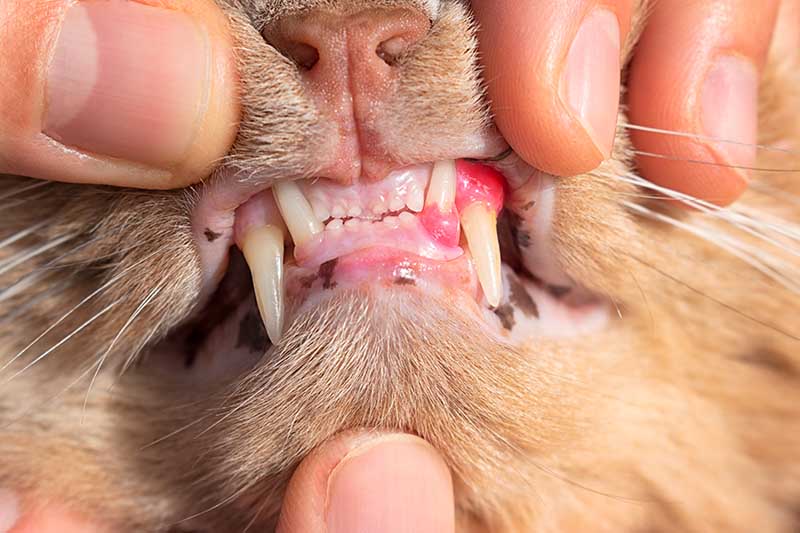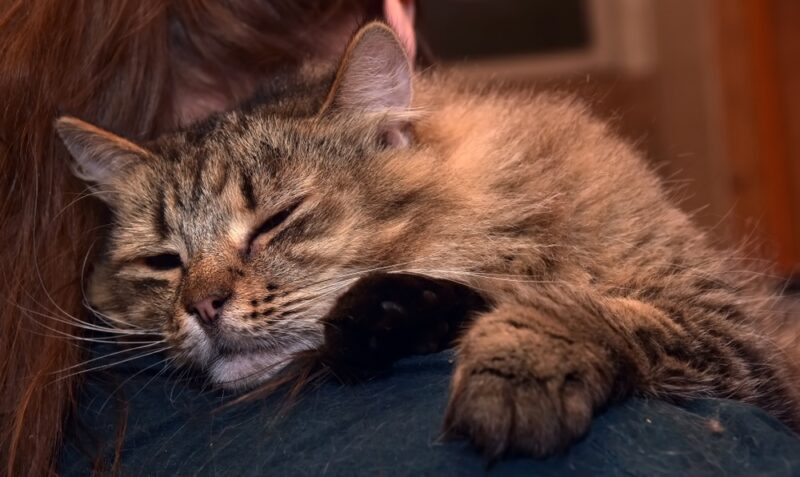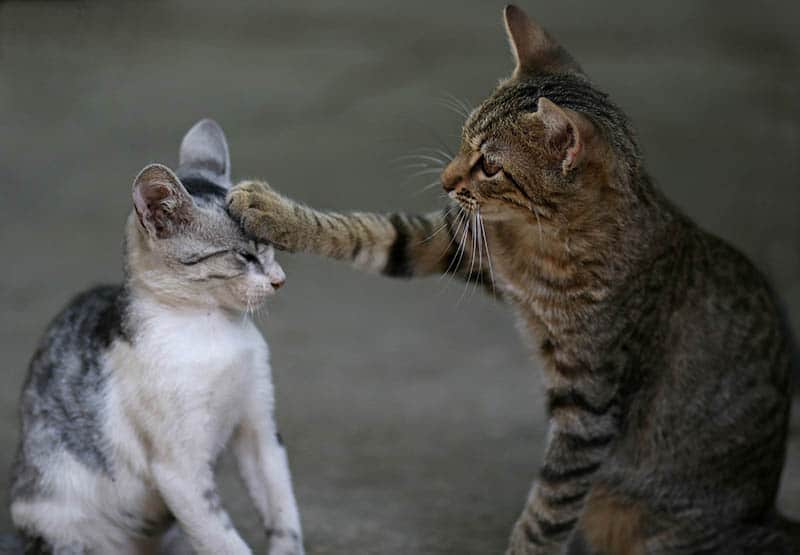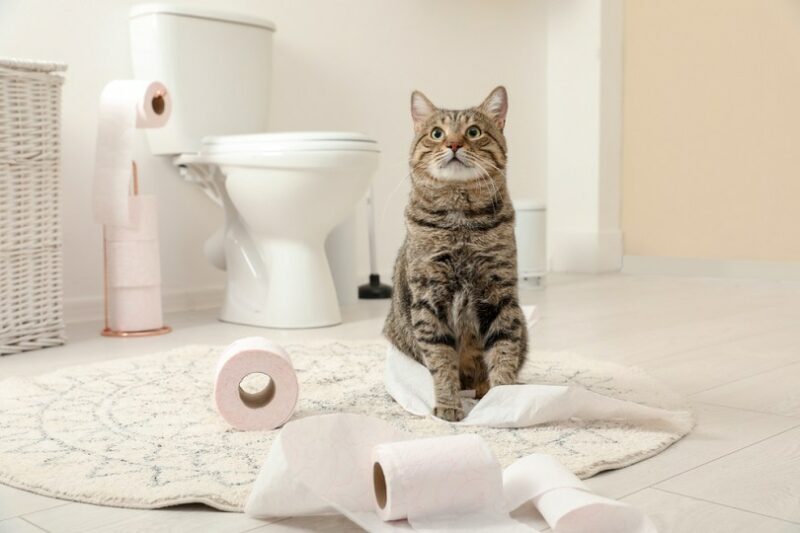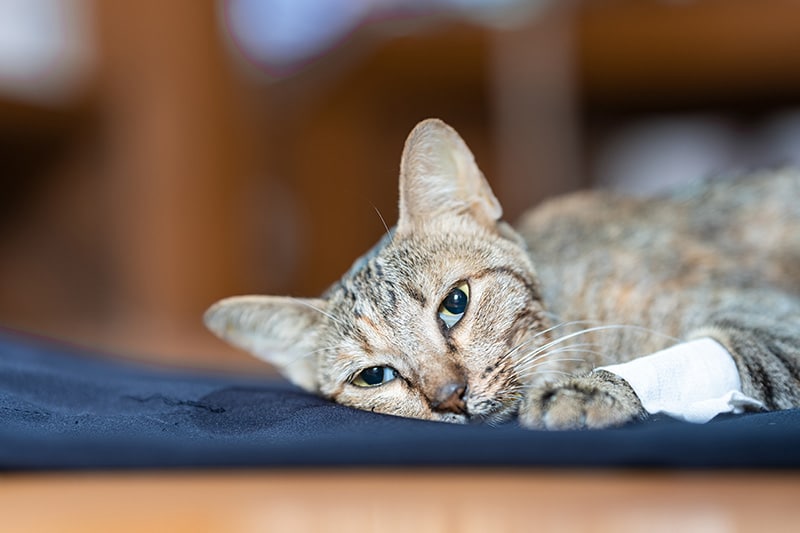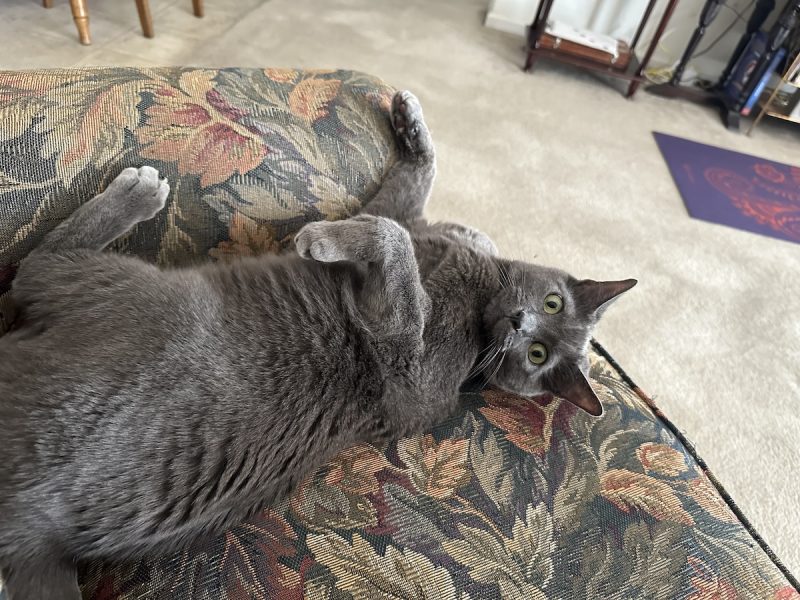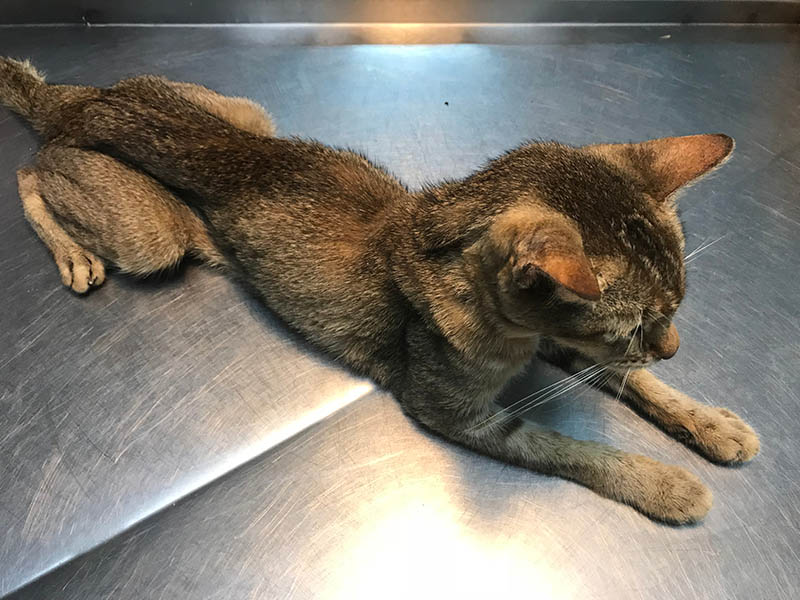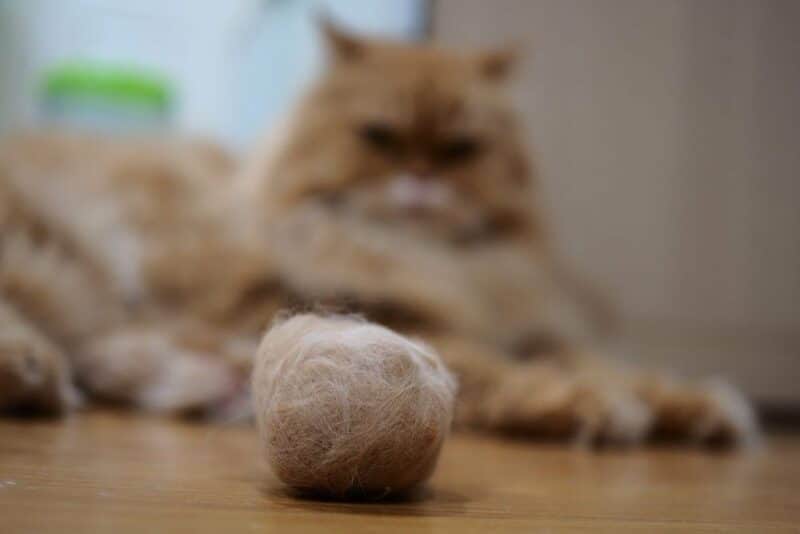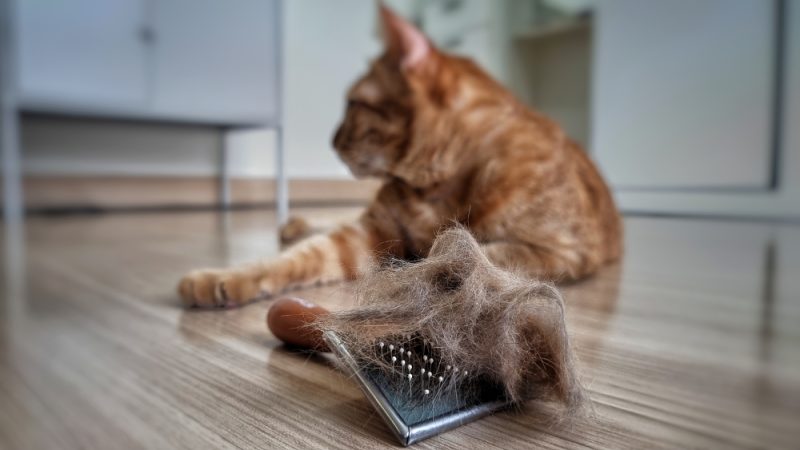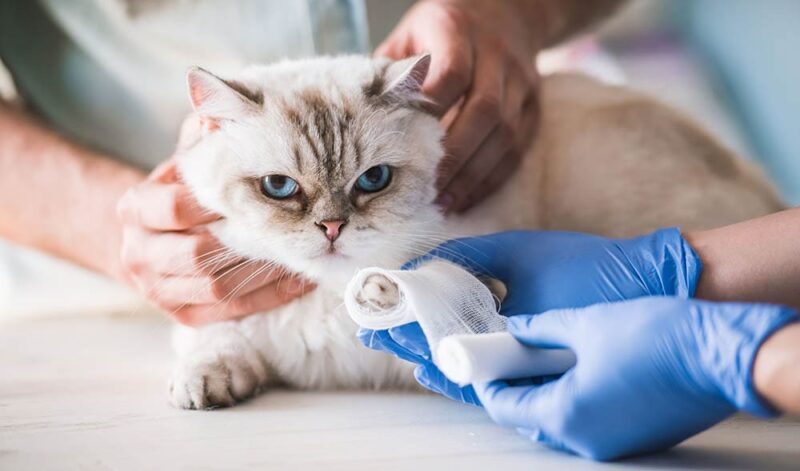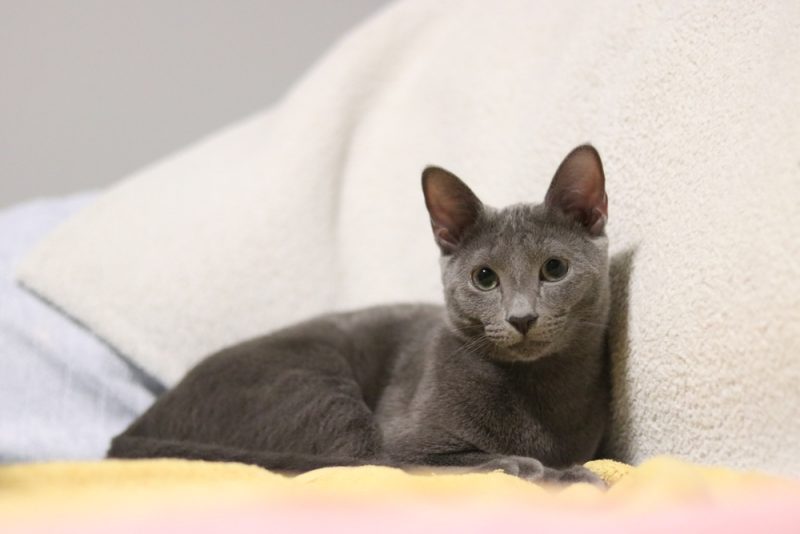Naturally, one of the first questions that come to mind when our pets are diagnosed with a health condition is “can my pet die from (insert condition)?” In the case of tooth resorption1, a common dental disease in cats, the good news is that over the course of our research, we found no evidence to suggest that this condition in itself can kill cats. Tooth resorption is a treatable condition.
The bad news is that left untreated, tooth resorption can become incredibly painful for cats and can cause other oral issues and behavioral issues. In this guide, we’ll explain the basics of what tooth resorption is, how it affects cats, and how the condition is treated.

What Is Tooth Resorption?
Tooth resorption is a complex dental disease that is still being researched. It occurs when the tissue, called cementum, which covers the roots, starts to be eroded by tooth digesting cells called odontoclasts. With time, the dental structures are destroyed by this process. The affected tooth will almost completely disappear, leaving behind only a raised bump where it used to be. In some cases, the affected tooth develops a hole—these resemble cavities but they’re not the same thing.
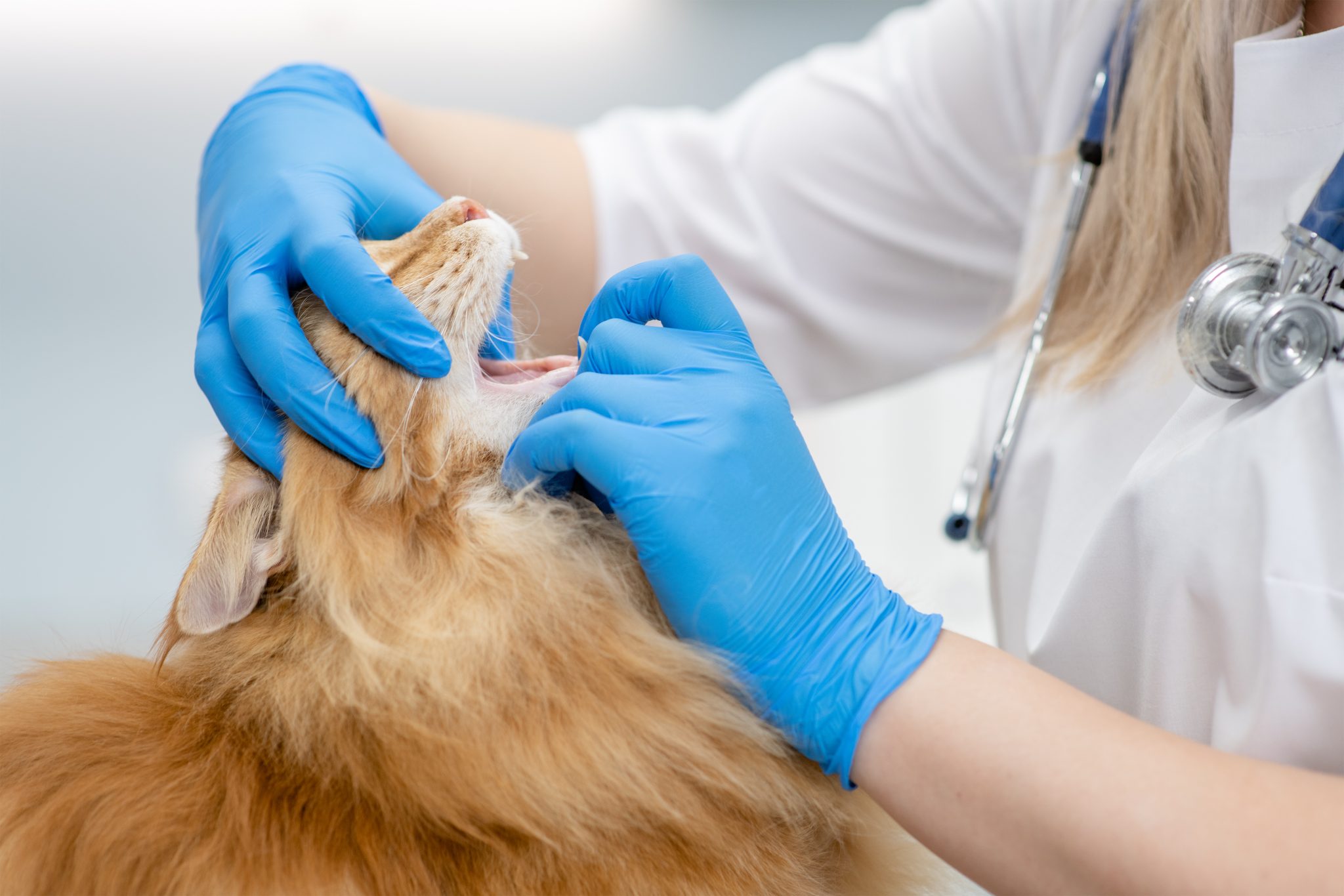
There are five stages of tooth resorption.
- Stage 1-Mild dental hard tissue loss
- Stage 2-Moderated dental hard tissue loss
- Stage 3-Deep dental hard tissue loss
- Stage 4-Extensive dental hard tissue loss and tooth has lost its integrity
- Stage 5-Only remnants of the hard tissue are seen; gum has covered the surface
The exact cause of tooth resorption is not known and is still under investigation. What researchers have learned is that tooth resorption is more common in older cats.

Symptoms of Tooth Resorption
Symptoms of tooth resorption include:
- Jaw champing
- Jaw trembling
- Difficulty eating (dropping food, etc.)
- Lack of appetite
- Weight loss
- Being less playful than usual
- Irritability
- Lethargy
- Bleeding gums
- Drooling
- A dark pink stain on the tooth

How Is Tooth Resorption Treated?
Tooth resorption treatment depends on which of the 5 categories it falls into. This will be determined by a veterinarian and will require examination under anesthesia. The affected teeth and roots usually require removal. You may be referred to a specialist veterinary dentist if several teeth are affected.
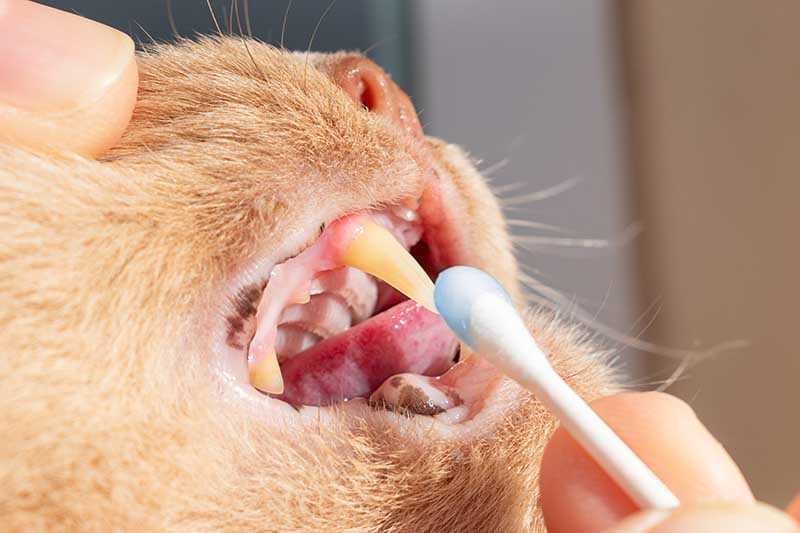
How Long Until My Cat Recovers from Tooth Extraction?
Once the vet has performed the surgery, your cat can begin the process of healing and having a much better quality of life. After tooth extraction, cats typically recover within a week, but this process may be longer if your cat has had multiple teeth removed.
The vet may prescribe antibiotics and/or pain medication and a soft food diet to make your cat more comfortable while they get better. The vet may also want to schedule a checkup at some point over the next few weeks to make sure everything is going well. Keep an eye on your cat at home and if they seem unwell or in pain even though you’re giving them the prescribed pain medication, contact a vet.
If you need to speak with a vet but can't get to one, head over to PangoVet. It's an online service where you can talk to a vet online and get the advice you need for your pet — all at an affordable price!


Can Tooth Resorption Be Prevented?
No, this is not a disease that can be prevented. You may, however, be able to slow down the potential development of dental diseases with daily tooth brushing. It’s also important to make sure your cat gets a wellness exam at least once per year so a vet can spot any developing problems quickly.

Conclusion
So, tooth resorption doesn’t kill cats, but it is nevertheless a very painful condition and treatment should be sought as soon as possible. Treatment involves surgically removing the affected tooth/teeth and, once this has been carried out, your cat will start to feel better. If you are concerned about your cat’s dental health in any way, please contact a vet to find out what your next move should be.
Featured Image Credit: Yaya Photos, Shutterstock
